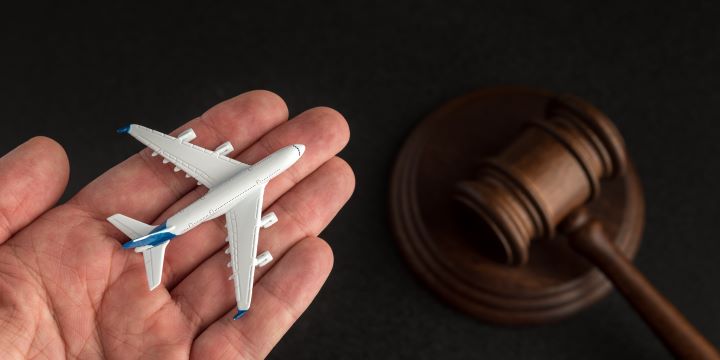Aviation law covers almost all aircraft and airport operations aspects. It includes various legal issues, from lawsuits over wrongful detention to contractual disputes between an airline and its employees.
Several international institutions, such as the ICAO, regulate this branch of law. It mediates global concerns regarding civil aviation and helps develop air transport standards.
Legal Issues
Whether a business aircraft, private jet or helicopter, a commercial airliner, or a cargo ship, the aviation industry involves complex transactions and significant liability. Having experienced legal representation with top aviation law firms is essential.
Several federal laws and regulations govern air traffic, including the Federal Aviation Act of 1958, which established the FAA. In addition, the National Transportation Safety Board and the U.S. Court of Appeals for the District of Columbia Circuit have established many precedents and remedies in aviation law matters.
Other issues related to aviation law include patents, trademarks, and copyrights. For example, a company that develops an innovative electric motor for an eVTOL aircraft could seek patent protection to keep competitors from copying its design. Alternatively, the company could keep its manufacturing process a secret rather than pursue patent protection.
Pilots, mechanics, certified flight instructors, air show exhibitors, banner towing companies, and airports need a basic understanding of aviation laws. The same goes for airline passengers and people working in airport security. This knowledge is essential for any individual who works in the industry. Students earning a bachelor’s degree in aeronautics are often required to take a course on aviation law as part of their B.S. program. This is a clear sign that university administrators want their students to understand the importance of the legal aspects of aviation.
Business Entities
Aviation law is a specialized field that impacts every aspect of air travel, aircraft manufacturing, and business aviation. A basic understanding of these laws is essential for anyone in this industry, from airline passengers to flight dispatchers. Even students earning a bachelor’s degree in aeronautics or similar degrees will be required to take at least one course in aviation law as part of their curriculum.
The legal issues in the aviation industry are complex. They can affect everyone, from public companies and high net-worth individuals who own and operate business aircraft to financial institutions and manufacturers that finance, build, and manage them.
We advise private pilots, fixed-based operators, flight schools, and airport sponsors on their legal matters. Whether facing litigation or needing to negotiate a new partnership agreement, our team has the expertise to provide creative solutions to any challenge you face.
The aviation industry is regulated by federal law. As a result, state lawmakers need more authority to pass laws related to aviation. They can, however, pass zoning laws that dictate the hours of operation and noise levels at local airports.
Co-Ownership Agreements
As aviation law touches every possible aspect of business aviation, the complexities vary widely depending on the company’s particular operations. From how close to sunset non-instrument-rated pilots may make a landing to how many air traffic controllers must be in a tower at a certain time of day, the rules and regulations surrounding this industry can affect everything from what a company must pay its employees to how it structures its aircraft ownership/operational structures.
As a result, it’s important for companies seeking to operate an aircraft to consult with experienced aviation attorneys to understand the specific laws that apply. An incorrectly structured company can run afoul of the FAA and potentially face costly fines or reputational damage from being publicly identified as an alleged law violator.
A well-drafted co-ownership agreement will outline how profits and losses will be shared, what happens if one partner wants to sell their share in the future, and other key areas. A good co-ownership agreement will also contain provisions governing handling disputes. At the same time, it’s impossible to prevent all disagreements; companies must understand the process that will be followed when arguments arise.
The Civil Aeronautics Act of 1938 created the Civil Aeronautics Board (CAB), which regulated airline routes until deregulation. As the CAB became increasingly entrenched in its anti-deregulation stance, it became increasingly difficult for new firms to enter the market as existing airlines controlled the industry’s cartel services.
Insurance
Understanding aviation laws is crucial for anyone who works in the industry. Whether it is airline passengers or airport security personnel, people need to know how these laws affect their daily operations. Even the pilots should have a basic knowledge of the laws to ensure they do not violate any regulations.
Aviation law is a vast legal practice that regulates aircraft and airport operations, aircraft ownership, pilot licensing requirements, air traffic control safety standards, and even space travel. It also addresses commercial transactions such as aircraft-airport use agreements, airline-airport leases, dispute resolution, and insurance matters.
Internationally, when countries must agree on aviation policies and safety standards, they usually work through the ICAO or the International Civil Aviation Organization. This institution is part of the United Nations.
Regardless of the size or type of your business, attorneys can protect your interests.

